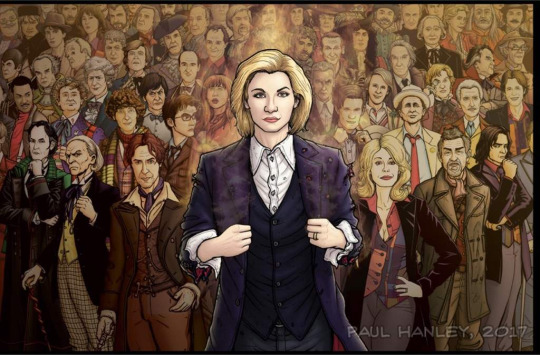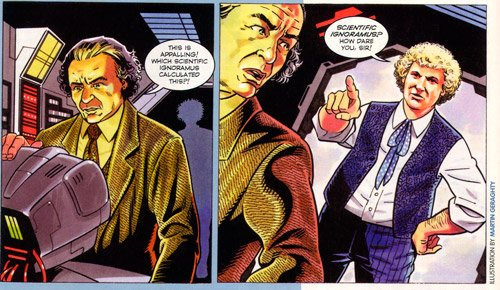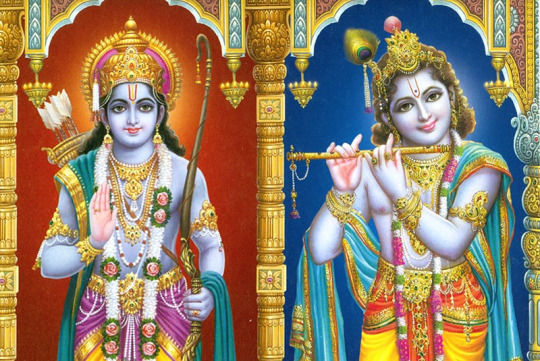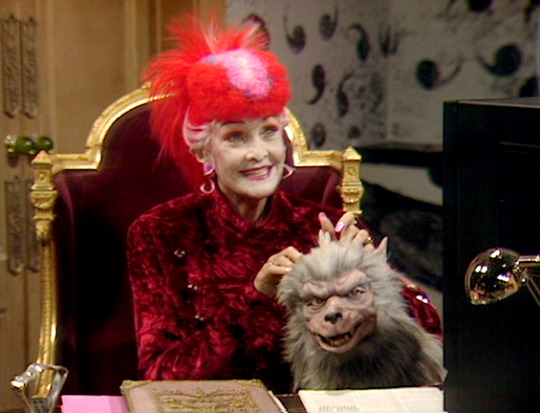#i know so much about the bible and therefore have so many good omens theories
Text
i was watching good omens with my dad and he informed me that bildad the shuhite is in fact a real guy from the bible having catholic parents is great man
#i know so much about the bible and therefore have so many good omens theories#bildad the shuhite#good omens#crowley#aziraphale#ineffable husbands#good omens 2#gomens#good omens s2
576 notes
·
View notes
Text
Angel Crowley's Indentity?
Alright, I won't be delving too much into this theory for now, but I wanted to discuss the topic of angel Crowley and specifically her identity. (I will be referring to Crowley with all pronouns in this post.)
So, as somebody who's been in the Good Omens fandom since, well, the release of season 2, I've been trying to think about which angel Crowley would have been in the past and, more specifically, her relationship with God. There are many theories in the past such as her being Raphael or even Jophiel, which are fine but I don't inherently subscribe to. However, let's get a better look at who exactly these angels are.
Disclaimer, I am doing the bare bones of research for this right now as this is more-so a silly little thing. That and I am not an expert in religion at all.
Raphael, as stated by a quick search, is a "protector" and "healer" and one of the main, well-known archangels. In fact, he is one of the strongest angels and can outmatch most other angels he is paired with. Although Good Omens does not necessarily line up with the Bible and its teaching 1:1, I still look to it to form thoughts and opinions on certain things. Raphael, unlike Crowley, is not a fallen angel and therefore should still exist within Heaven and be a separate angel entirely.
Moving on, we can now look to Jophiel, another common theory. Honestly, I see this as a cute theory, being the angel of "art", "beauty", and "wisdom". When I think of her, I associate her with "love" which would make Crowley a being of love. I think this is a lovely (no pun intended) idea as I see angels as being of love, at least they are supposed to be. Similar to Raphael, Jophiel is an archangel who did not fall.
It would make more sense for angel Crowley to be Jophiel rather than Raphael since Jophiel, in my opinion, would be more inclined to beauty and creation. Crowley was a starmaker in the past, an angel that created a beautiful thing for humans to witness. However, I don't think certain aspects of both angels line up as they should when it comes to Crowley.
These theories, however, are on the right track. In season 2, episode 6 (yes, I know, the dreaded episode), we are met by this quote/scene between Muriel and Crowley:
"It's all confidential. I can't show it to you. I mean, I couldn't open it if I wanted to. I don't have clearance. You'd have to be a Throne or a Dominion, or above."
Of which Crowley opened the file easily and responded with:
"I haven't always been a demon, and they never change their passwords."
So, keeping that in mind, we must turn to the exact rankings of angels. I've found that the rankings are as such:
HIGHEST ORDER
-Seraphim
-Cherubim
-Thrones
MIDDLE ORDER
-Dominions
-Virtues
-Powers
LOWEST ORDER
-Principalities (Aziraphale <333)
-Archangels
-Angels
Which is a bit confusing considering Archangels are considered one of the highest powers in Good Omens, below the Metatron, of course. I forgot where I had seen these, but there MAY be a distinction between "archangels" and "Archangels" (yes, the capital matters.) In that way, it would make sense, that instead Archangels are somewhere within the Highest Order.
Having established that, we can determine that Crowley was either a Dominion, Throne, Cherubim, Seraphim, or an Archangel. And wow, that is a lot to look through when determining who she would be.
Now, to my theory on who I believe angel Crowley to be. Personally, I see them as "Kokabiel". When looking him up, Kokabiel is said to be a "holy angel" or even a "high-ranking angel". Now, I'm unsure of what exactly they would be in the ranking of angels above, but I think it's safe to assume via this description that she is relatively powerful. Our beloved Crowley is a starmaker and Kokabiel is quite literally known as the "angel of the stars". Not to mention that Kokabiel is a fallen angel which would match up with the Crowley we know today.
The angel Kokabiel was known to be dismissive at times about worldly concerns which may go against our idea of Crowley. But in some ways, it lines up. We know, in the nicest way possible, that Crowley is a selfish being. He desires to protect those closest to him or the things he cares about most in general. Crowley had fallen in love with their stars and it would make sense that he would choose to protect them dearly before even thinking of humans.
Moving on a bit, I want to discuss Kokabiel and her relationship to God. Honestly, I believe that Kokabiel was one of God's if not God's favorite angel. This may seem confusing at first and a bit too "serious" considering I am claiming that Crowley/Kokabiel is God's, the Highest Almighty being, favorite creation. Looking into it further, however, seems to allow something to click in my mind.
In the Bible, Lucifer is the one to turn into the Serpent of Eden. Lucifer was the one to tempt Eve into eating the apple, thus spurring the common story shared today. So why is Crawley the Serpent in our story? Sure, this can merely be of plot convenience and serve only to move the story along, but I believe that it has a greater purpose. God had handed down this fate unto Lucifer. Yet in Good Omens, Crawley was given this punishment instead. This implies that they had some sort of personal relationship with God.
Again, these are all just a small collection of theories on certain ideas regarding Crowley's early identities. I could be wrong, and I most likely am, but these headcanons are all in good fun!
#good omens#angel crowley#ineffable husbands#kokabiel#im going insane#crowley#crowly good omens#gomens#aziraphale
22 notes
·
View notes
Text
The Doctor with a Thousand Faces

Art by Paul Hanley
When I say the words "Fourteenth Doctor," what springs to mind? Perhaps you may say "Peter Capaldi," if you want to get super technical. Or perhaps, you may be thinking about Jodie Whittaker’s future successor. And to that point, you may already have someone in mind. Whoever he, or she, or they may be, there are key traits that you tend to expect. The Doctor may look and dress different, but they must also possess a certain "Doctoryness," about them.
Doctor Who is unique. Very few live-action shows have the ability to change their lead actor while maintaining the same character. Sure, they did it on "Bewtiched," but it never became part of the narrative. You could argue that Twin Peaks achieves this with characters like Laura Palmer returning in the form of Madeline Ferguson and Carrie Page. Or even more recently, American Gods with Media and New Media. But what about before that? What about a time before foreign Gods came to America, or certain Time Lords came to British television? What if the undying hero is part of our fabric as a species?
Within its title, Doctor Who has dared its viewers to ponder the question- "Who is this mysterious stranger?" I would venture to say the answer lies somewhere within the culture of the era. Our concept for who the Doctor is, and what they represent has changed throughout the years. As we change as a culture, our expectations of the hero change. The new gods of our pop culture mythology are still fallible, and therefore, subject to change.
It's a fairly popular fan theory that every one of the Doctors is a response to his or her predecessor. And there are even real-world moments when you can see the showrunners course-correcting a bit of bad writing. The Sixth Doctor was so loathed within the higher ranks at the BBC, that the Seventh Doctor is clearly a conscious response. Where Six was brash, Seven was quiet. While Mel was a screamer, Ace was fierce and brooding. On an even deeper level, because Doctor Who is so unique, you can also apply these course corrections narratively.

The Doctor's incarnations act more as avatars of an overarching hero of great power and intelligence. It would seem as though every regeneration is an opportunity for the Doctor, and us as an audience to ponder the identity of the Doctor. Christianity has God the Father, Jesus the Son, and the Holy Spirit, all aspects of the same one God. What does each of them imply about the other? Is each Doctor informed by an overarching consciousness? Is every aspect made in its image, or is the Doctor the sum of their parts? After all, the Doctor is still alive. We are actively watching the Doctor’s lifetime, which as of yet, is still ongoing.
In the Hindu pantheon, we get gods like Vishnu and Shiva who also take up corporeal form as avatars on earth. Much like the Doctor, these avatars are usually direct responses to their predecessor. Take Vishnu, for example. Vishnu incarnates in several different eras, usually as a response to some great imbalance in the world. But often times, their personalities explore a different aspect of Vishnu overall. As the avatar Rama, he lived so lawfully that, depending on which version of the Ramayana you prefer, cost him the love of his life. In his next incarnation as Krishna, he corrects this by being more anarchic, more bohemian, and much more free-loving. On the other hand, he was also more authoritative, as compared to Rama's gentler nature.

You could compare these two characterisations to the Third and Fourth Doctors. The Third Doctor literally worked with the military while the Fourth Doctor flew in the face of the Brigadier, hanging his feet out of the Jeep like a petulant teenager. While both Doctors have the same authoritarian streak, they're usually found in opposite directions. The Third Doctor's officiousness melts away into warmth, while the Fourth Doctor's charm burns away with his fury. All the while, each of them demands we as viewers continue to ponder the nature of our terrifying friend.
We’ll spend the entirety of the show pondering that nature. Because, as I stated before, the Doctor’s life is ongoing. Much like Vishnu sustaining the universe, Shiva’s dance has not yet ended, Brahma has not yet awakened. The dance of life continues. We can live in the past or the future, but we can never escape the present. Each Doctor stares down the barrel of their own demise. Even we as an audience see each successive Doctor as temporary. Their days are numbered, and no matter how many times you change your hair, your wardrobe, your gender, we all fear the reaper. So we focus on the now, when we’re alive. We focus on our own unique challenges.
Every son of God, it would seem, has their own cross to bear. Each hero meets a greater burden that speaks to the culture of a time. As Jodie Whittaker's Doctor is yoked with the incumbrance of sexism, so too was Colin Baker yoked with censorship. Conservative backlash has often times landed Doctor Who in the hot seat. "The Trial of a Time Lord," is a story arc that directly addressed the real-world accusations of the show's violence. In "Rosa," the Doctor goes toe-to-toe with the embodiment of a nasty internet troll in the form of Krasko.
It's funny then, to view how this response to popular culture has changed throughout the years. Ben and Polly were practically Bible thumpers compared to the real world culture of hippies that were capturing the hearts and minds of people everywhere in the '60s. In their own way, they're a couple of squares that fly in the face of what was actually "cool," at the time. Even this goes against the mercurial trickster that was the First Doctor, who bit his thumb at your fuddy-duddy schoolmaster in the form of Ian Chesterton. Doctor Who of the '80s seemed like more of a "2000 AD" comic book world, which makes sense when you consider who was Prime Minister at the time.

Not only is the Doctor's personality explored throughout these incarnations, but the symbolism surrounding the Doctor as well. The name "Doctor," itself has been explored to some depth within the show. What does being a doctor mean to the Doctor? A doctor is a person who can bring us hope. They can also bring us dreadful news. Some of us don't like seeing the doctor because death seems to follow them around. The Doctor also carries a tool as opposed to a weapon. We're given the impression that the Doctor is a person who wants to fix things. Even psychic paper is a symbol for the Doctor's anarchic streak. "Badges? Badges? We don't need no stinking badges!" Psychic paper plays to that devilish side in all of us that wants backstage access and lies on our résumé. The symbolism of the TARDIS has also changed over the years. Modern perceptions of the police may taint the image of a police box in the same way modern perceptions of America may taint the image of Captain America. However, I would like to think that both Cap and the Doctor represent the potential of what these things could become. The Doctor is what a good cop should be.

People say Doctor Who shouldn't be political, but from a historical standpoint, that's impossible. It's always had the same character, fighting for freedom from unjust capitalism, to totalitarianism, to unimaginable callousness. The Doctor has never asked what a person's sexuality was before saving their life because the Doctor is an actual hero. The Doctor doesn't have to agree with your lifestyle to agree that life is precious. What kind of Doctor would they be if they went around allowing someone to die? That's no kind of Doctor at all. This is why Doctors sometimes need people around to kick them in the ass when they're being total kumquats.
Whether we call them assistants, or companions, or friends, the Doctor's fellow travellers remain cyphers for the audience, though some more than others. While on the other hand, it would seem as though the Doctor represents something deeper, something more conceptual. Like a doctrine passed from leader to leader. "Never cowardly, never cruel." Keeping humans around to keep the leader in check. We the viewer have this abstraction of our greater self, playing companion to the strangeness that is this existence. We love these stories because they’re our history, our world, and our trajectory. Past, present, and future. They're embedded in our religions and in our myths. So we keep the tradition of storytelling alive so that we might never forget these elements within ourselves. And to remember that no matter how bad things get, to appreciate being alive now.
Hello friends! For those of you who may be wondering, yes I have posted this article already. However, I wasn't completely happy with it, so I retooled it a bit. Sometimes you gotta do that! I've been up to rather a lot since we last talked. I went to see Andrew Cartmell speak in Leeds a few weeks ago, and that was great fun. He had so many wonderful insights into his era. We're still working on K9, but things have been a bit slow because of my pal's schedule. I've still got plans to write an Eighth Doctor article, but I decided to put it off for the time being. I'd like to go a little deeper into his audios and books now that I've finished his comics. I've also got articles planned for Doctor Who in video games, Doctor Who canon, and I might start doing profiles for villains I love.Speaking of profiles, I may also start interviewing some of my favourite Whovians. I know so many avid fans of the show with their own wonderful perspectives, that I wanted to incorporate them somehow! On the Twin Peaks front, I was thinking about sharing a series of comics I've been working on. Each comic explores a different theme in the show. I've also been toying with the idea of writing about other shows. Speaking of which, who all watched Good Omens? I loved it. What did you think?
#doctor who#vishnu#rama#krishna#bbc#tardis#Thirteenth Doctor#seventh doctor#sixth doctor#trial of a timelord#rosa#third doctor#fourth doctor
15 notes
·
View notes